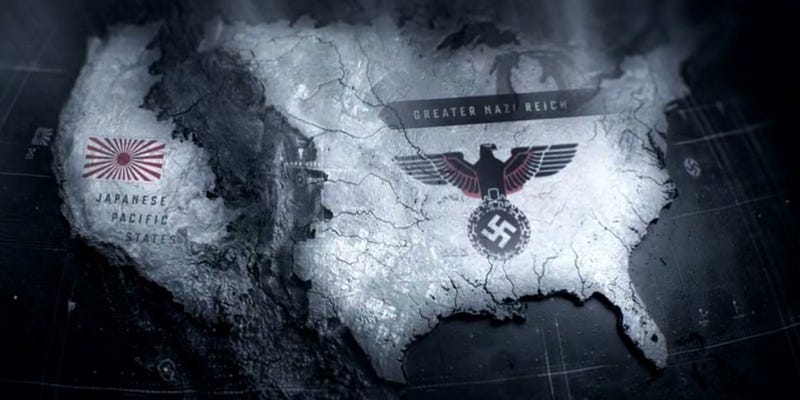The Holocaust and Nazism in the Media
The Man in the High Castle: Part 2
The Creation of the 'Other'
One of the core aspects of Fascism in general, and Nazism in general, is the creation of the 'Other' that must be opposed or eliminated. Fascism arose during the troubled economic situation facing the world in the wake of the Great Depression and the stock market crash. Germany was especially vulnerable to the rise of a dictatorship with nationalist leanings, with its poor economy being compounded by the lingering defeat of Imperial Germany in 1918 in World War I. With its defeat, the victorious powers, Great Britain and France in particular, imposed a humiliating treaty, the Treaty of Versailles. This treaty limited German autonomy, set limits on their military, and handed over two regions, Alsace and Lorraine, to France (Germany had previously taken these regions from France in the Franco-Prussian War in 1870).
Adolf Hitler and many other Germans were looking for a scapegoat to blame for the defeat of Germany. A scapegoat is a a person who is blamed for the wrongdoings, mistakes, or faults of others, especially for reasons of expediency. A few groups were blamed by Hitler and others, particularly in the German High Command, for the defeat, such as Communists and Jews. They created the myth that these groups 'stabbed Germany in the back' when they were on the cusp of victory, and instead forced Germany into a humiliating defeat.
In Mein Kampf, or My Struggle, Hitler's manifesto, he gives an example of such a claim. He states that "If at the beginning of the War and during the War twelve or fifteen thousand of these Hebrew corrupters of the people had been held under poison gas, as happened to hundreds of thousands of our very best German workers in the field, the sacrifice of millions at the front would not have been in vain." Hitler is doing two things here. First, he is blaming the Jews for the deaths of German workers and soldiers, and for the failure of the war, but secondly, he is creating an 'Other.'
An 'Other,' is a term that essentially means a person not of one's group. The idea of 'Othering' is a term used to describe describes the reductive action of labeling a person as someone who belongs to a subordinate social category defined as the Other. This basically means the way in which people are excluded and pushed to the margins of society, where the rules do not apply in the same way to the 'other.' When someone is not of one's group, but in fact, an Other, it becomes easier to allow bad things to happen to that Other.
In real life, the Jews, Communists, the mentally challenged, Gypsies, and numerous other categories of people were Othered by the Nazis. These people were pushed outside the nation. When Hitler talked about the German people and German workers, he was excluding these groups from his pure vision. Instead, these people were insidious outsiders determined to subvert, or destroy from the inside, the nation.
In the Man in the High Castle, we see this in action repeatedly in the former United States. In the German controlled areas, many people have come to see people such as Jews and handicapped people as the 'Other.' In one scene, a man casually refers to the smoke and ash that is spewing forth as the burnt remains of undesirable groups, without thinking about it. I want you to think about it - these people are likely from this man's local area, yet he does not care, because they are outside the group. They are 'drains upon society' as he says. In another scene, a mother in the Japanese area watches German television and expresses a wish that they were under German control, not Japanese. The Japanese have both Othered the Americans, and been Othered by the Americans. In contrast, this woman sees herself within the German order.
This video is the entire first episode. Watch it if you would like, but I would like you to watch two scenes. First turn to 33:45 and watch that scene (runs to around 36:00). The second clip runs from 13:27 to 14:45.
Some questions to consider in the comments: Please answer at least two of these questions in the comments, and reply to at least three of your classmates' answers. Please response to any comments on your answers.
What does it mean to Other someone?
What role does Othering take in the Man in the High Castle?
Do you see the creation of the Other in today's society at all? Where do you see it?

No comments:
Post a Comment